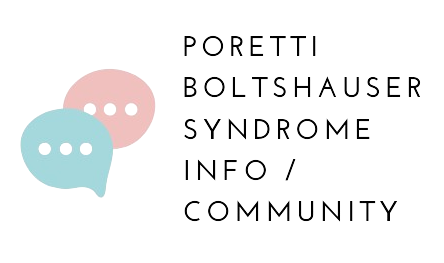This page will contain a list of therapies that can be useful for your child, or for you if you have PBS. I hope this list can be of help!

Physical Therapy (PT)
Physical therapy focuses on improving balance, muscle strength, and coordination. Children with PBS often have difficulties with movement and motor skills due to underdevelopment of the cerebellum. A physical therapist can create a personalized exercise program that helps improve mobility and gross motor skills.
Occupational Therapy (OT)
Occupational therapy helps children gain independence in daily activities like dressing, eating, and writing. OT can address challenges with fine motor skills, hand-eye coordination, and sensory processing, which are often areas of concern for children with PBS.

Speech and Language Therapy (SLT or SLP)
Children with PBS may experience speech delays or have trouble with articulation, fluency, and language comprehension. Speech and language therapy can assist with improving both verbal communication and non-verbal communication, including gestures or the use of assistive devices if necessary.
Feeding Therapy
Feeding issues are common in children with cerebellar dysfunction, and feeding therapy can help with chewing, swallowing, and oral motor skills. A speech therapist or occupational therapist with experience in feeding disorders can help manage these challenges.
Aquatic Therapy (Hydrotherapy)
Exercising in water can help children develop balance, coordination, and muscle strength in a low-impact environment. The buoyancy of water makes it easier to move, reducing strain on the body and encouraging movement that might be difficult on land.

Sensory Integration Therapy
Some children with PBS may have difficulties processing sensory information, leading to over- or under-reactivity to stimuli (like sounds, lights, or textures). Sensory integration therapy helps children improve their ability to respond to their environment in a more balanced way.
Vision Therapy
If a child with PBS experiences visual-motor integration problems or other vision-related issues (e.g., trouble tracking objects or focusing), vision therapy can help. This is usually led by an optometrist and can improve visual processing and eye coordination.

Hippotherapy (Equine Therapy)
Hippotherapy involves therapeutic horseback riding, which helps improve balance, muscle tone, and posture. The movement of the horse provides sensory input and can enhance neuromuscular development.
Cognitive Behavioral Therapy (CBT)
Some children with PBS may experience anxiety or frustration due to their developmental challenges. CBT can help them manage emotions, cope with stress, and build self-regulation skills.
Social Skills Training
For children who struggle with communication and social interaction, specific social skills programs or group therapy can be beneficial. These programs focus on teaching appropriate social behaviors, turn-taking, and conversation skills.

